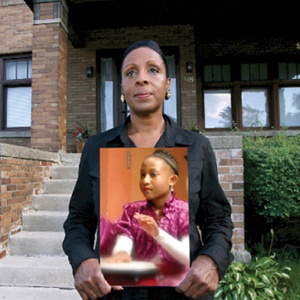![]() |
| Special Advocates For the Elderly |
ELKO – Called another pair of eyes and ears for the courts, Special Advocates For the Elderly is now accepting applications for volunteers.
Northeastern Nevada SAFE will offer its first volunteer training 9 a.m. to 1 p.m. March 16 at the Elko Senior Center.
The organization officially launched last week, announcing Jalaine Stanton as executive director and board of directors: attorney Katie McConnell, president; Teri Lockie, treasurer; attorney Lauren Landa; secretary, and attorney David Loreman, director.
Established in 2016, SAFE will train volunteers to prepare them for appointment by Elko District Judge Nancy Porter to elder guardianship cases.
Volunteers will receive about 20 hours of training before being sworn in and assigned a case. They will learn about guardianship laws, the protected person’s bill of rights that was passed by the Legislature in 2017, and how to advocate for a protected person by making sure financial, physical, mental and emotional abuses are not taking place.
SAFE volunteers will also be required to give a written report and testimony to the court on the status of the protected person during guardianship hearings.
Although a SAFE must advocate for a protected person’s well-being, volunteers are also expected to form relationships with protected persons, their guardians and caregivers, said McConnell.
“Volunteers are going to be our core strength and be the SAFEs,” McConnell said.
Porter explained that a SAFE could also offer “a little bit of relief” to a caregiver as support or stay with the protected person for short amounts of time.
After training is complete, a volunteer will undergo a background check and be required to attend two guardianship hearings before being appointed to one or two protected persons to visit every other week.
“It is a time commitment to the person and the court,” Landa said. “There will be oversight of the SAFE volunteer as well.”
According to Porter, there are anywhere between 500 and 900 guardianship cases in the county which includes elderly, adults, and children, with one case going back as far as 1971.
“I’m hoping we could get at least 20 volunteers,” Porter said, adding that it would be ideal to have more than that to cover all of the cases in Elko County.
McConnell said if at least five appeared at the first training on March 16, it would be a good start.
“Depending upon how much interest we have” we’ll offer more training sessions, McConnell said.
Landa explained it was Porter who saw the need for additional help as Elko County’s population is aging and the caseload is growing.
“This is the attempt to create some oversight and protection for the people in our community,” Landa said. She also hopes that others will come to learn that the organization is looking out for the elderly.
“We care about these people. We want to protect the people in our community,” Landa said, and let them know that “somebody is watching out for them.”
Porter said she hears 10 to 11 guardianship cases a week which includes accounting and appointment hearings. taking up about one-third of her weekly caseload.
“There could have been a lot of abuse that could have gone on because these cases weren’t being monitored like they should have been,” Porter said.
Loreman agreed, explaining that he has seen cases coming though to his office that he said “are being ignored by law enforcement.”
“Somebody has to care,” Loreman said, explaining that having an advocate though the SAFE program will be “like having an extra set of eyes for the court. It gives Judge Porter more information to deal with to make sure the people are being taken care of correctly and not being taken advantage.”
“It’s important for me as a judge knowing that the guardian is not out there doing their job,” Porter said, adding that although guardians are required to make annual financial and status reports to the court, “it has not been monitored. Ever.”
Public Guardian Kathy Jones said involving a SAFE volunteer in a guardianship case would add another layer of security in an elderly person’s life.
“I think it’s a quality of life issue for the protected person to have so many people advocating for them and watching out for their well-being,” Jones said, adding that it could prevent abuse and neglect of senior citizens.
Jones said that she hoped the program would also bring reason and common sense to guardianships instead of assuming it is always good or always bad for the protected person.
There is also a possibility that a SAFE could even detect which people may only need supportive-decision making instead of a restrictive guardianship, McConnell and Porter said, both citing a couple of recent cases that were reviewed and adjusted because the person involved didn’t need a guardian, but needed help instead.
“I think there are a lot of cases like that, but people don’t know or are uninformed,” McConnell said. “We can help inform them [by] providing these resources in the community.”
Additionally, a SAFE may be able to determine if a person is truly in need of a guardian, something that cannot be learned in a two-hour hearing, Porter said.
For those interested in becoming a SAFE, Stanton said she will interview the volunteer, arrange the training, find a case that matches up with the volunteer’s personality to recommend to the court, and work with the volunteer’s schedule, even if they can handle one case.
“We want everybody to volunteer. If you want to help, we’ll find a place for you,” Stanton said.
Most of the time a volunteer invests is at the start of the the training as the SAFE learns about the case, McConnell said. “I think you could easily have a full-time job and still volunteer.”
Stanton emphasized that a SAFE volunteer is part of a team of guardians, caregivers and family members who each have the same goal: Looking out for the welfare of a protected person. It’s very important that the SAFE and the guardians relate to each other, she said, because “we want to make sure they have the best quality of life that they can.”
“The goal is to be a team,” Stanton said. “We are advocating for the elderly, and we want to work together.”
McConnell said that although SAFE will provide eyes and ears for protected people in the court system, she said that she is frequently asked about elderly people who do not have a court-appointed guardian and may be in a vulnerable position.
“We have no way of helping these people until they are somehow brought in front of the court, but we’re hoping that this is a mechanism to try help more people because we’re putting in a non-biased, volunteer person,” McConnell said. “We can’t give them a SAFE until it goes through the process.”
Another opportunity for SAFE is to raise awareness in the community about possible elder abuse situations, perhaps reporting them to the Public Guardian or Department of Aging to start an investigation, Landa said.
Porter said a new resource was implemented with a state guardianship compliance office recently established though the Nevada Supreme Court.
The official launch of SAFE comes on the heels of recent elder abuse cases prosecuted by the Attorney General’s office, including cases in Elko and Las Vegas.
Attorney General Adam Laxalt announced five cases of elder abuse, including one that involved a former lieutenant with the Las Vegas Metropolitan Police Department and attorney who exploited an elderly couple for $700,000.
In Elko, Wade Fordin pled guilty to charges related to converting more than $6,100 of his mother’s estate for his personal use. He received 60 days house arrest and probation in district court on Feb. 26.
Abuses seen by the courts include guardians who might misappropriate a protected person’s funds by keeping Social Security checks and failing to pay household expenses or health care bills.
Full Article & Source:
SAFE elderly advocacy program launched ![]()




























